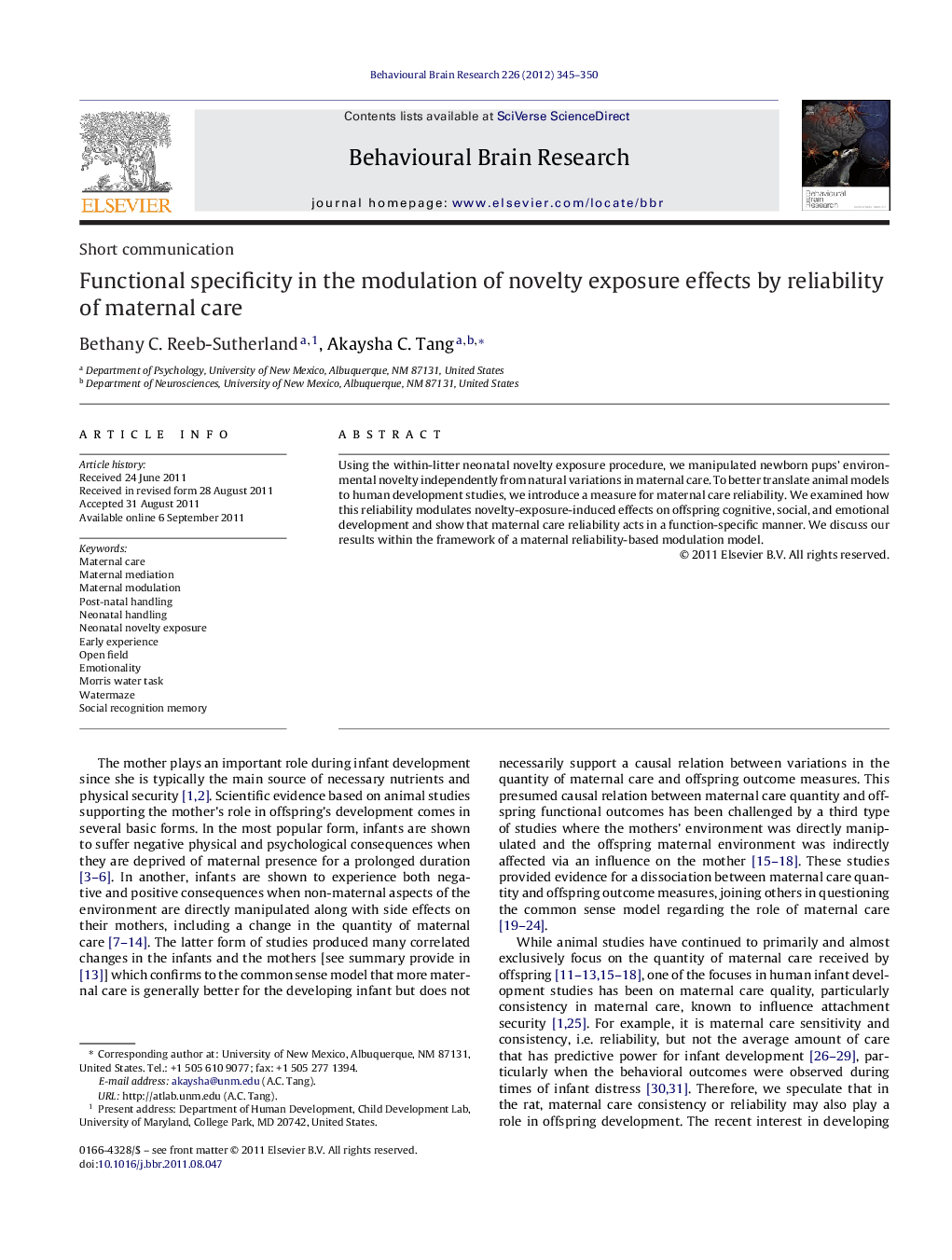| Article ID | Journal | Published Year | Pages | File Type |
|---|---|---|---|---|
| 4313528 | Behavioural Brain Research | 2012 | 6 Pages |
Using the within-litter neonatal novelty exposure procedure, we manipulated newborn pups’ environmental novelty independently from natural variations in maternal care. To better translate animal models to human development studies, we introduce a measure for maternal care reliability. We examined how this reliability modulates novelty-exposure-induced effects on offspring cognitive, social, and emotional development and show that maternal care reliability acts in a function-specific manner. We discuss our results within the framework of a maternal reliability-based modulation model.
► The relation between maternal care reliability and novelty exposure effects on offspring behavior is function-specific. ► Among offspring of mothers with reliable care, novelty exposure led to enhancement of spatial working memory. ► Among offspring of mothers with unreliable care, novelty exposure can lead to impairment of spatial working memory. ► Paradoxically, if offspring experienced little novelty, less reliable maternal care is associated with better spatial working memory. ► This paradoxical relation has only limited external validity for it does not hold true for pups with 3-min daily novelty exposure.
